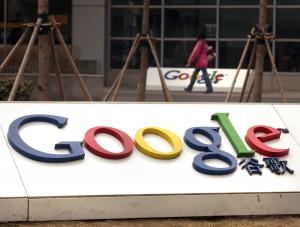Late last year President Barack Obama, looking to continue his ‘pen and phone’ strategy of governance, announced that he was asking the Federal Communications Commission (FCC) to reclassify Internet service under Title II of the Telecommunications Act of 1934, a move that would turn the Information Superhighway into the 405 Freeway of connectivity.
Here in California, we regularly use the ballot initiative process to govern ourselves. Often, when a well-funded special interest is trying to ram through a change to the state’s laws, the opposition screams that the measure is a “solution without a problem.” The FCC’s potential actions in regards to Title II and the Internet fall in the same category. No one is crying out to be freed from the shackles of anything, anywhere, anytime broadband service.
In considering a Title II reclassification, FCC Chairman Tom Wheeler is deciding to ignore two decades of massive investment, economic growth, and thousands of small businesses started from the laptops of entrepreneurs. President Clinton and Congress had the foresight in 1996 to regulate the Internet with a “light touch.” The government’s rare decision to leave the nascent technology sector to itself touched off an innovation firestorm without which many of us couldn’t live our lives, and for anyone born after the mid-1990s, wouldn’t recognize.
Title II at its fullest would essentially turn major Internet service providers like AT&T, Comcast and Verizon, into regulated public utilities (think your electric company). We’ve seen how federally regulated quasi-monopolies operate. Just ask anyone who works at AT&T when it was called Bell Telephone. For 60+ years, innovation occurred at a sclerotic pace, save the iconic Princess phone that hung in so many American kitchens.
And even if there were technological or economic reasons for the FCC to take such drastic actions, when is the last time the US government managed a major system well? The Department of Veterans Affairs has been a travesty. Medicare? Care is poor, payments are low and fraud is rampant. Pentagon procurement? How’s the F-35 treating you? Domestic surveillance? Well, “Hello, Ft. Meade.”
For all the President’s rhetoric about the importance of the American middle class, net neutrality has the potential to take away the greatest potential for social mobility in decades–namely, starting a business with nothing more than a laptop and a good idea. As we cannot see the future, we should not create obstacles to new and continued investment in the Internet economy. Billions of dollars a year are flowing to start-up companies, all of them dependent on the Internet. Uncertainty and bad policy may cause angel investors and venture capital firms to put away their wallets, stifling the ability of a new generation of American entrepreneurs to code their big ideas and dreams into successful enterprises.
In 2010, the FCC attempted to regulate Verizon in a quasi-Title II manner. Verizon sued and last year, the US District Court in Washington, D.C. overturned the FCC’s actions, saying that the agency had overstepped its congressionally mandated authority. While the FCC believes it has changed its language enough to survive another court challenge, there will be dozens of lawsuits stretching years and costing billions of dollars–money that might go to building more, better and faster infrastructure.
A senior AT&T executive, discussing Title II several years ago, called it the “nuclear option.” In this case, we should remind the smart people at the FCC of the parents’ old trope: just because you can do something, doesn’t mean you should.
There are many things in the U.S. that need fixing or major reform. The Internet, as it stands today, is not one of them. Rather than having a bunch of bureaucrats sitting around tinkering with things that are assuredly far past their understanding, let’s leave the networks to themselves. In the last 20 years we have seen greater technological innovation than any other time in human history. Allowing the FCC to start throwing up roadblocks, posting speed limits and serving as the Internet’s highway patrol will reduce speed, service, investment and innovation.
How are any of those things desirable?
Reed Galen is a Republican political consultant in California. He can be reached at rgalen@gmail.com

COMMENTS
Please let us know if you're having issues with commenting.